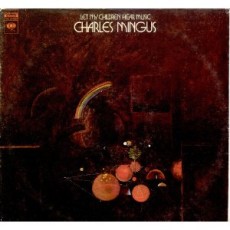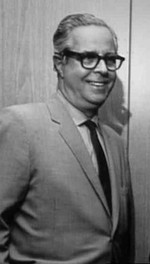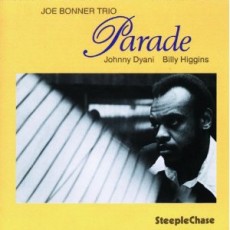
Daily Dose Of Jazz…
Charles Mingus Jr. was born on April 22, 1922 in Nogales, Arizona of Chinese, English, African and Swedish heritage. His mother allowed only church-related music in their home, but Mingus developed an early love for jazz, especially the music of Duke Ellington. He first studied trombone, later adding cello, which prepared him for the double bass in high school. He studied five years with H. Rheinshagen, principal bassist of the New York Philharmonic and compositional techniques with Lloyd Reese.
Beginning in his teen years, Mingus was writing quite advanced pieces incorporating elements of classical music. A number of them were recorded in 1960 with conductor Gunther Schuller and released as “Pre-Bird”, referring to Charlie “Bird” Parker. Mingus was one of many musicians whose perspectives on music were altered by Parker into “pre- and post-Bird” eras.
Gaining a reputation as a bass prodigy, his first major professional job was playing with former Ellington clarinetist Barney Bigard. This followed by a tour with Louis Armstrong in 1943 that led to his recording in a band led by Russell Jacquet that included Teddy Edwards and Chico Hamilton. He went onto record with Howard McGhee and into the late ‘40s played with Lionel Hampton’s band performing several of his pieces.
A popular Mingus trio had Red Norvo and Tal Farlow in tow in the early 50s with considerable acclaim but his mixed heritage caused problems with club owners and he left the group. Charles was briefly a member of Ellington’s band until his temper got him fired. He went on to record and play with Max Roach, Bud Powell, Dizzy Gillespie, Charlie Parker, Pepper Adams, Jaki Byard, Horace Parlan, Booker Ervin, John Handy, Charles McPherson, Eric Dolphy and Johnny Coles among others through the Sixties and into the next decade. By the mid-1970s, Mingus was suffering from Lou Gehrig’s disease that eventually stopped his playing, leaving him to continue composing and supervising recordings prior to his death on January 5, 1979 at age 56 in Cuernavaca, Mexico.
Composer, bandleader, bassist and civil rights activist Charles Mingus left a legacy of an autobiography, Mingus Big Band, Mingus Dynasty, Mingus Orchestra, the Charles Mingus High School Competition, the catalogue of Mingus compositions in the Music Division of the New York Public Library and the collected papers of Charles Mingus housed at the Library of Congress in Washington, DC.
More Posts: bandleader,bass,composer

Daily Dose Of Jazz…
Alfred Lion was born in Berlin, Germany on April 21, 1908. His fascination and lifelong pursuit of jazz began at age 16 when he witnessed a jazz concert with Sam Wooding’s Orchestra. In 1929 he migrated to the U.S., went back to Germany, and returned to New York in ’38 where he attended a Carnegie Hall concert that inspired him to start his record label, Blue Note in 1939.
The label debuted with Albert Ammons and Meade Lux Lewis but their first hit was Sidney Bechet’s “Summertime”. By this time childhood friend Francis Wolff joined and sustained the label while Lion served in the Army. He recorded many of the biggest names in jazz throughout the 1940s, 50s, and 60s including but not limited to Grant Green, Dexter Gordon, John Coltrane, Tina Brooks, John Patton, Miles Davis, Eric Dolphy, Lou Donaldson, Andrew Hill, Cecil Taylor, Ike Quebec, and the list goes on and on.
Lion had recruited Ike Quebec as the label’s A&R man and at his insistence Lion began to explore more modern developments in jazz bringing in Thelonious Monk as the first modern jazz musician. What became known as the “hard bop” style would predominate in Blue Note’s output during the 1950s and 1960’s. Musicians like Art Blakey and Horace Silver, among others epitomized this style. Duke Pearson took over A&R duties after Quebec’s death in 1963 ensuring the label’s roster remained fresh as a whole. Three significant elements made Blue Note releases stand out: the work of recording engineer Rudy Van Gelder, the photographs of Francis Wolff and the cover designs principally by Reid Miles.
Suffering from heart problems for some years, Lion sold the Blue Note label and catalogue to Liberty Records and retired to Mexico in 1967. Towards the end of his life, the record producer respected by musicians for his straight dealing and for ‘hanging out’ in the jazz scene, gained the recognition he had often been denied. Alfred Lion passed away on February 2, 1987 in San Diego, California.
More Posts: producer,record executive

The Jazz Voyager
The Jazz Corner: Village at Wexford. C-1. Hilton Head Island / Telephone: 843-842-8620. Fax: 843-842-8640 / Contact: Bob Masteller.
The Jazz Corner is an intimate luxury, full-service jazz club with an outstanding American eclectic menu and gourmet food served at reasonable prices. International jazz stars are featured on weekends and local and regional jazz during the week. The club is open 51 weeks, 7 days a week for dinner and jazz. The acoustics and design of the club have won national awards and the seating capacity is 100. Reservations required, sometimes as much as a week in advance.
Sponsored By

Daily Dose Of Jazz…
Joe Bonner was born on April 20, 1948 in Rocky Mount, North Carolina. He studied and earned a B.S. in Classical Music from Virginia State College in Petersburg. His early influences were McCoy Tyner and Art Tatum but he cites that he learned much from the musicians he worked with in the ‘70s including Freddie Hubbard, Billy Harper, Pharoah Sanders and Roy Haynes, who hired Bonner to replace Chick Corea.
Joe’s musical travels led him to Denmark where he joined or accompanied traveling jazz artists. Bonner has appeared on a long list of recordings as a bandleader or sideman, with titles released on Evidence, Muse, Capri, and ABC/Impulse! He has over a dozen sides out on the Steeplechase label recorded during his twelve-year stint in Europe, especially Copenhagen.
Since the turn of the new century Bonner has put out more fine records as his “Monkisms” and the highly acclaimed “The Art of Jazz Piano” that display his amazing knowledge of jazz piano structure and his ability to navigate the lucid joining of passionate solos, soulful harmonies, driving rhythms and orchestrating spirited improvised journeys into a celebration of rich modern jazz textures, rooted in bebop, gospel and blues.
Pianist Joe Bonner is known for playing hard bop and modal jazz, this enigmatic pianist has become a Denver jazz scene staple, currently leading the jazz quartet, The Bonner Party and for the past two decades has thrilled audiences with his virtuoso sensibility.
More Posts: piano

From Broadway To 52nd Street
A Little Night Music brings up the curtain of the Shubert Theatre on February 2, 1973. Stephen Sondheim composed the music that spawned the jazz classic Send In The Clowns. Glynis Johns, Len Cariou, Victoria Mallory, Laurence Guittard, Hermione Gingold and Mark Lambert. Though it only ran for 600 performances it went on to get a movie made in 1978, directed by Harold Prince and starring Elizabeth Taylor, Lesley-Anne Down and Diana Rigg.
The Story: Based on the Ingmar Bergman comedy about sexual liaisons at a country mansion. Frederick falls in love with his former mistress Desiree’ and would dissolve his marriage to his child bride. Count Carl, Desiree’s lover, attempts to cool the romance. However at a dinner party given by Desiree’s mother, Frederick’s son, Henrik, runs off with his young mother-in-law, the Count returns to his wife and Frederick and Desiree’ are free to pursue their romance.
Jazz History: It’s the 1970s and jazz is in an evolutionary mode as the old guard makes way for a new sound. The jazz world has witnessed the release of fusion albums from Weather Report, Chick Corea and Return To Forever and the Mahavishnu Orchestra. Herbie Hancock records the classic jazz/funk album Head Hunters that includes “Chameleon” and “Watermelon Man” as does drummer Billy Cobham with his recording “Spectrum” with Tony Bolin, Jan Hammer, Lee Sklar, Joe Farrell, Jimmy Owens, John Tropea, Ron Carter and Ray Barretto. In 1973 swing and bop saxophonist Ben Webster passes away on September 20th as does stride piano pioneer Willie “The Lion” Smith on October 8th. Fortunately for the many young men who haven’t been called upon, the United States is almost completely out of Vietnam.
Sponsored By
www.whatissuitetabu.com




